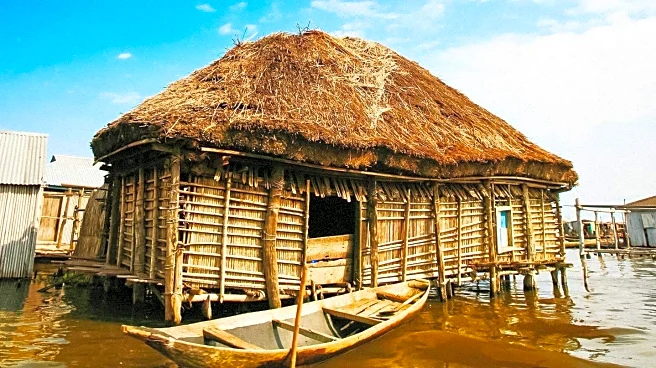What's Happening?
In Ghana's coastal mangroves, female oyster farmers are struggling to sustain their traditional practice due to climate change and the loss of U.S. aid. Beatrice Nutekpor, a farmer in Tsokomey, has been harvesting oysters since she was 15. The practice, dominated by women, is threatened by rising sea levels and the depletion of mangroves. The Development Action Association, which trained women in eco-friendly farming methods, lost its U.S. aid following President Trump's decision to cut foreign aid contracts. Despite these challenges, the women continue to protect and replant mangroves, which are crucial for oyster farming.
Why It's Important?
The loss of mangroves and U.S. aid has significant implications for the livelihoods of these women and their families. Mangroves play a vital role in protecting coastal areas from erosion and storms, and their depletion threatens the sustainability of oyster farming. The economic impact is profound, as oyster farming is a key source of income for many families. The situation highlights the broader issue of climate change affecting traditional practices and the consequences of foreign aid cuts on vulnerable communities.
What's Next?
The women are taking steps to preserve their practice by setting guidelines to protect mangroves. They face the challenge of maintaining their livelihoods while adapting to environmental changes. The community's efforts to replant mangroves are gradually paying off, but continued support and sustainable practices are needed to ensure the long-term viability of oyster farming.
Beyond the Headlines
The story underscores the resilience of these women in the face of adversity and the importance of preserving traditional practices. It also raises questions about the ethical implications of foreign aid cuts and the need for global cooperation in addressing climate change.











